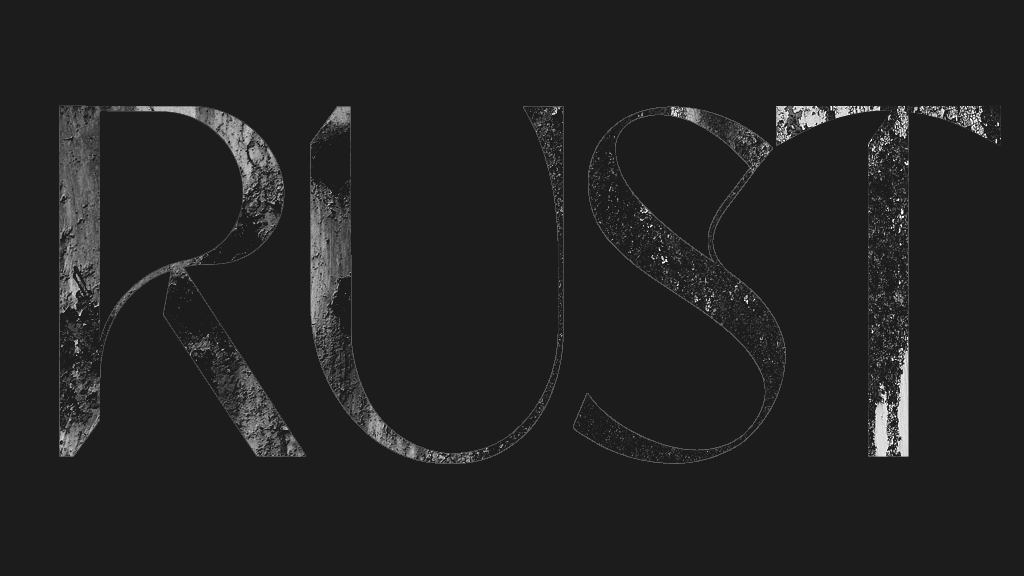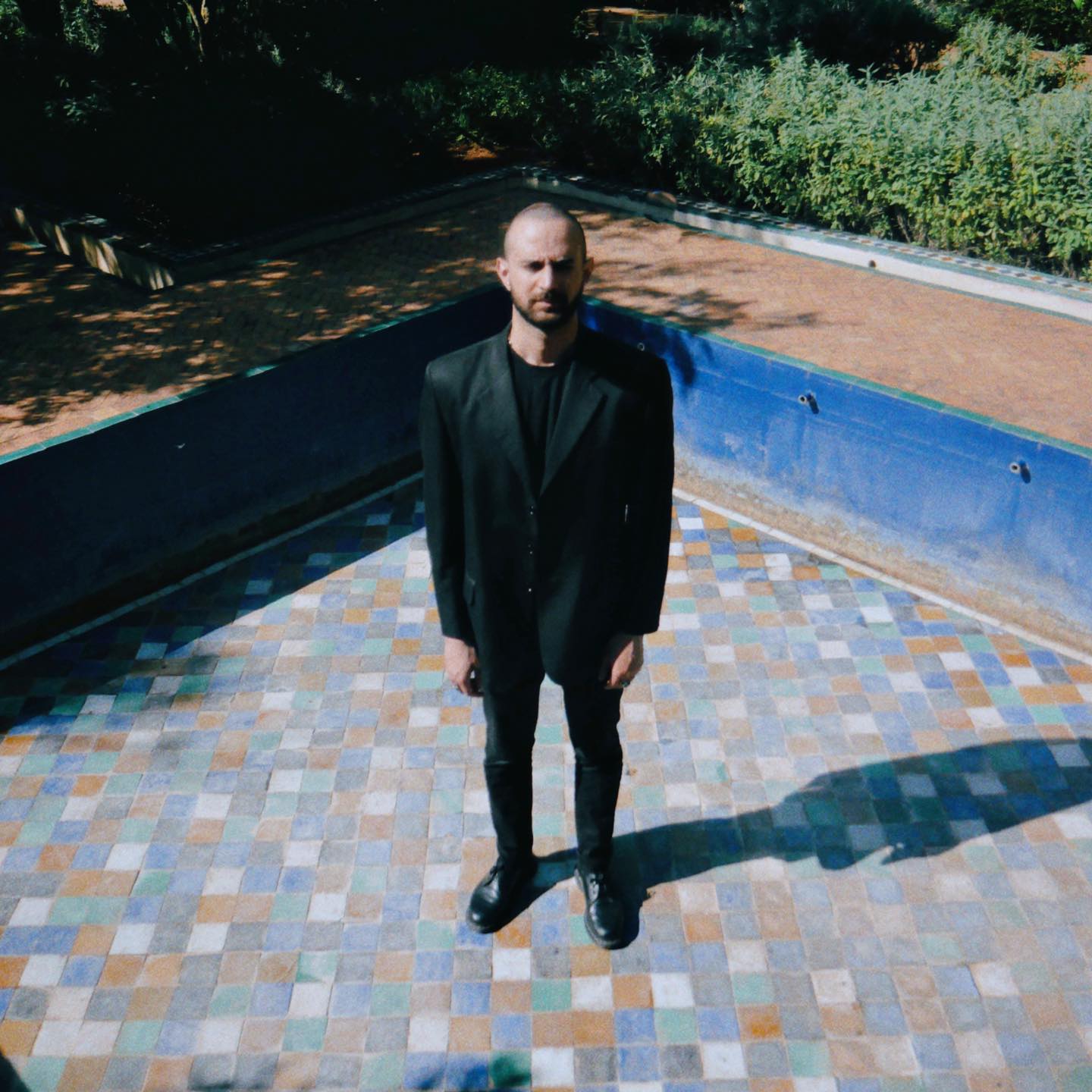Liza Aikin, the sound hunter
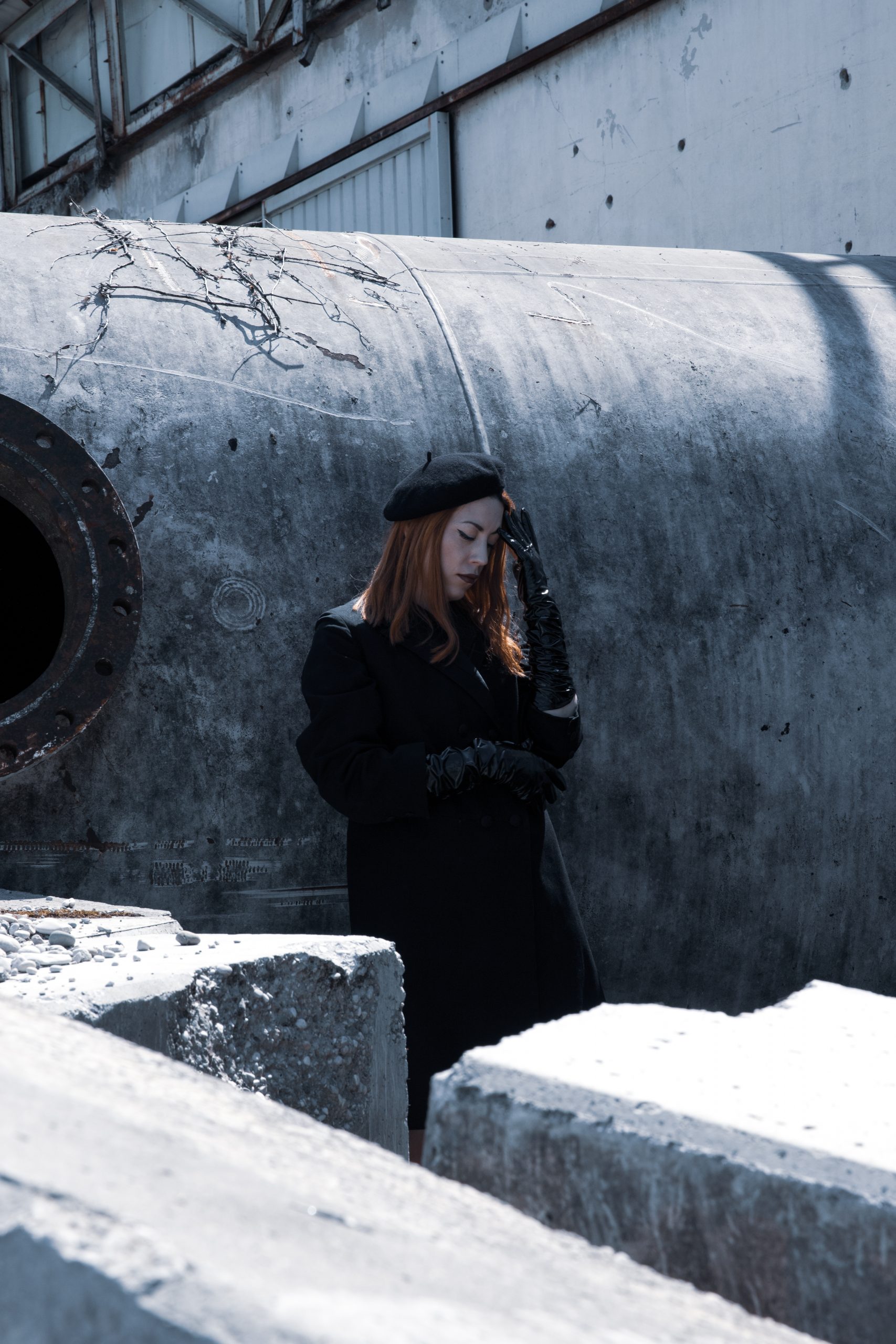
Liza Aikin is an electronic music producer based in Berlin. Resident DJ at Tresor, she’s also a live act performer and shares her skills through masterclasses at institutions such as the Electronic Music School in Berlin. Dedicated to tailor made music production, always looking to recreate the sound she was missing in the dance floor, with field recordings and modular synthetisers, Liza’s music has been released on labels such as Mord Records, Emetic, Gegen Records, Evar Records, OBSCUUR and Voxnox.
Oscillating between a futuristic, sophisticated, and delicate techno, Liza Aikin’s music stands out thanks to the richness of raw sounds, which she intricately sculpts, resulting in experimental, hypnotic, and cinematic techno pieces. Polyrhythmic structures, organic textures, and metallic reverberations define Liza Aikin’s music in the techno scene, distinguishing it with its uniqueness while seamlessly blending into the landscape.
To mark the release of her latest EP on Megastructure label, “Werkstatt_018“, released in February 2024, Rust asked Liza Aikin a few questions about the creative process behind this new project, which sounds like a laboratory of varied sonic explorations.
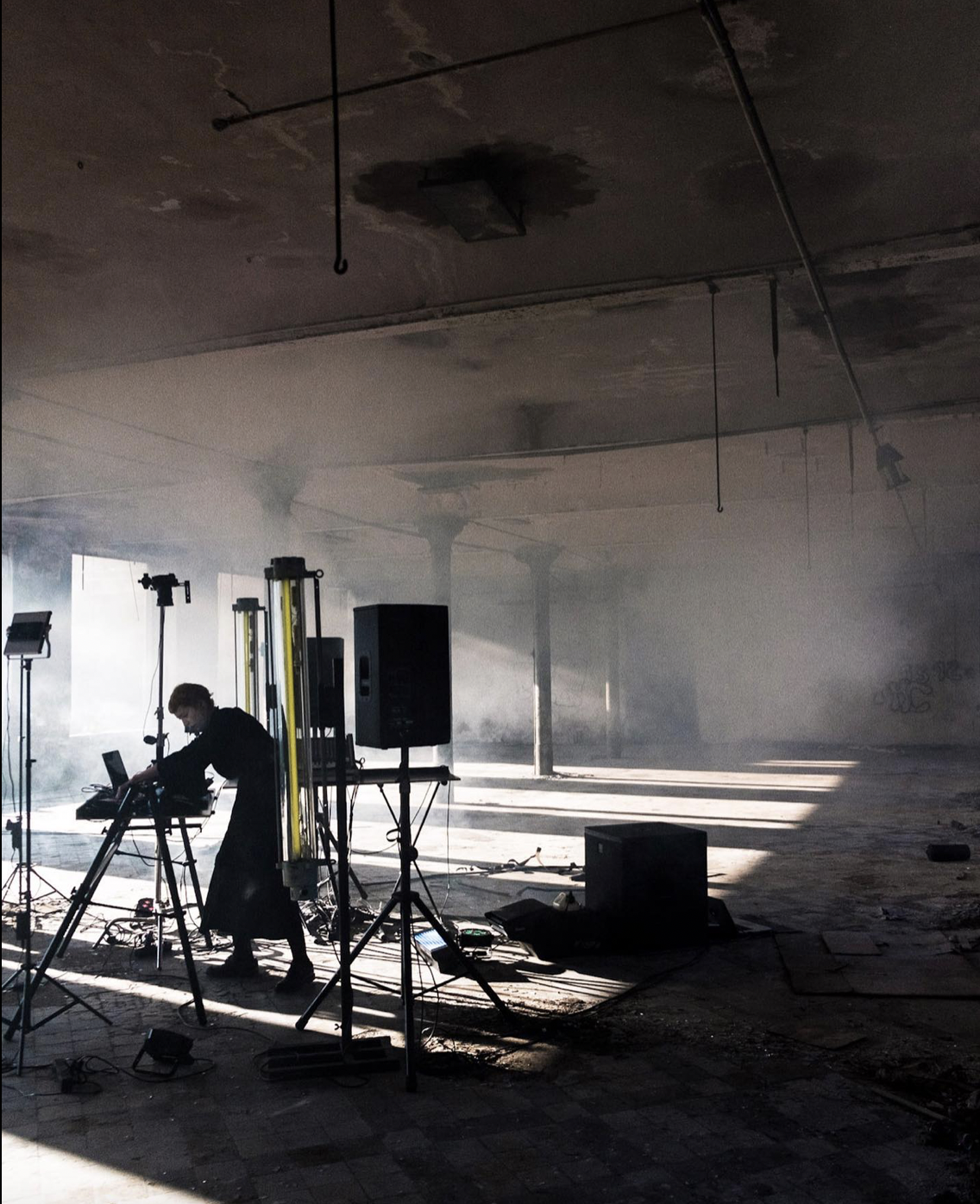
Rust : “Werkstatt_018” seems to be a highly conceptual project, whose german word literally means “workshop”: can we say that it’s a record produced in a sound experimentation workshop, in the style of an artist who paints, sculpts and shapes his elements within a purely creative space ?
Liza Aikin : I name tracks and Eps with words that are connected to where the field recording samples of that specific composition were taken and the circumstances on which I did the music. The meaning behind “Werkstatt_018” is more related to my father which passed during the time I started composing some of the tracks of this Ep. His ambition was to work in a workshop and restore old vehicles when in pension. Much of the field recording samples for this Ep where also done in a car workshop, given the circumstance I decided to add the number 018, which reminds of the date of his birthday.
Rust : In your EP with Monolog “Until There Was Nothing”, released on Evar in 2022, I read that that you considered the record, and I quote, “one of my most savage, but also thanks to that, the most technically accomplished.” Does finding unusual places to capture raw sounds allow you to explore your creativity, while at the same time challenging yourself technically, from the moment you start working on your recorded sounds?
Liza Aikin : Raw field recording sounds are definitely a treasure trove, every sound has infinite potentials in terms of sound manipulation and inspiration. Monolog and I started the project by going to “hunt for sounds”, after exploring a couple of places and recording some potentially interesting field recordings we set them up in the studio. Since our music styles are quite different, that was a good common starting point. I appreciated working with an experimental drum’n’bass producer because you must be very detail oriented to produce that kind of music, in addition, bass music gives a lot of emphasis to the bass element of the composition (obviously), which I find is something not as detailed in techno. Merging those elements to my usual sound aesthetic was at times hard, but very technically rewarding.
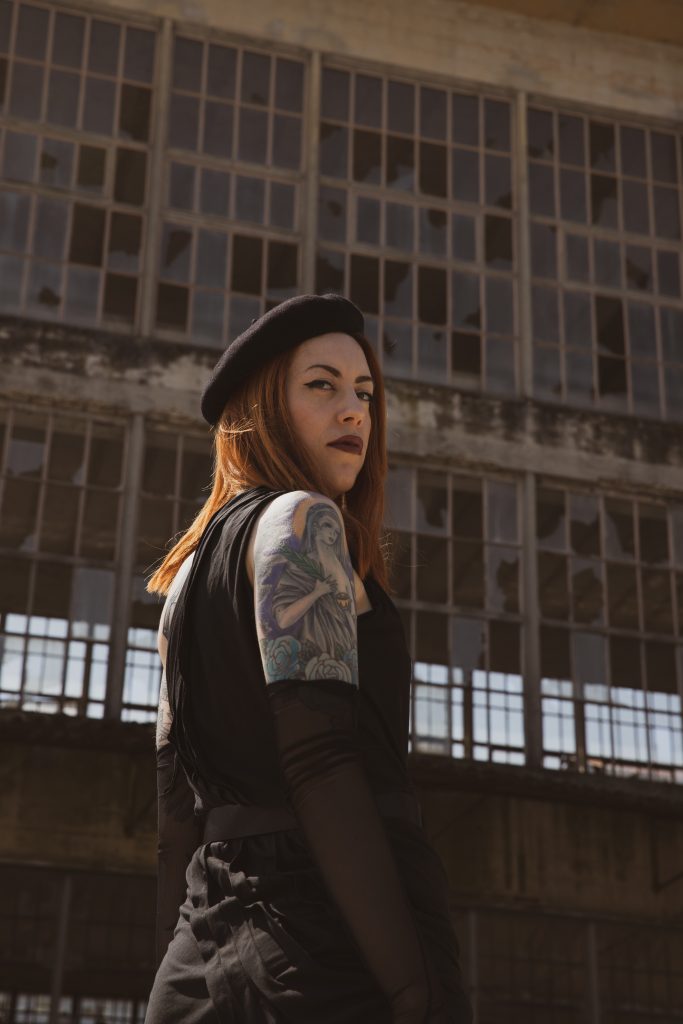
Rust : We can feel in the composition of your pieces a particular attention to details, to the sound texture, to innovation in the use of sounds typically associated with the industry. What do industrial processes evoke for you, and what specifically attracted you to an automobile tuning workshop?
Liza Aikin : My father worked in a very noisy factory. I first asked to take some samples of that place, and then went on to record more factories in the nearby industrial area. You see, in a factory the noise can be overwhelming, at first glance it’s just a mess, but if you pay attention to the details and observe the little movements of the machines, you’ll find that the beauty of the sounds is in the details. The clicks, the repetitive actions produced by the machines, those are the samples you want to focus on… then the noise becomes just a background. So I guess, yes you need to be detail oriented in order to spot the good bits in the recordings, it does require a lot of “cleaning” and EQ work to get the background noises tamed.
I asked to go sample the car workshop, because I imagined the tools used to disassemble car parts could potentially sound very good as layering elements for rhythms. I would then use the sounds with a longer resonance, such as the lifting platform stopping, as sound source in Ableton Simpler, for pads and ambience.
Rust : In more detail, you recorded the electrical artifacts from an experiment with a Tesla coil, found in electric car engines. How did you go about capturing the sounds in this car tuning shop?
Liza Aikin : I found the tesla coil experiment in the Technikmuseum in Berlin. Museums are very interesting places in terms of sounds, you never know what you might find. Science museums in particular. In that case it was a welcome discovery, as I didn’t predict it would sound so interesting. I find the actual sound of electricity, extremely interesting and connected to the type of music I produce. Since discovering this type of sound, I keep on going back to electrical sound samples for composition.
Rust : The use of purely industrial sounds as the main sonic material is reminiscent of the unusual elements that Einsturzende Neubauten borrowed directly from the industry, as well as the performances given by Orphx in the early 90s in a Canadian industrial manufacture. In your approach to sampling, is your initial goal to reuse the raw material in order to remain true to the sound it evokes, or on the contrary, to restore and shape something totally unrecognizable?
Liza Aikin : I never specifically tried to make industrial music, I guess it just came came out like that naturally. As a child and during my teenage years, I lived behind a factory, when opening my bedroom window I could always hear the factory turbine engine noise come in. It is literally, the kind of sound I am most accustomed to. The idea is to remain true to the sound it evokes, personally I need an element that is reminding me of when or were I captured that samples. It’s like a diary a way to bring up a memory, an attempt to bring something personal, to a sound that is purely abstract for the listener. Like a secret message that only I know, or my friends will know because I told them were I went to get that sound.
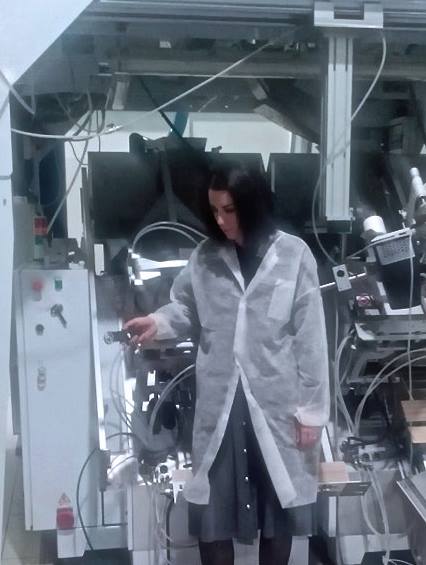
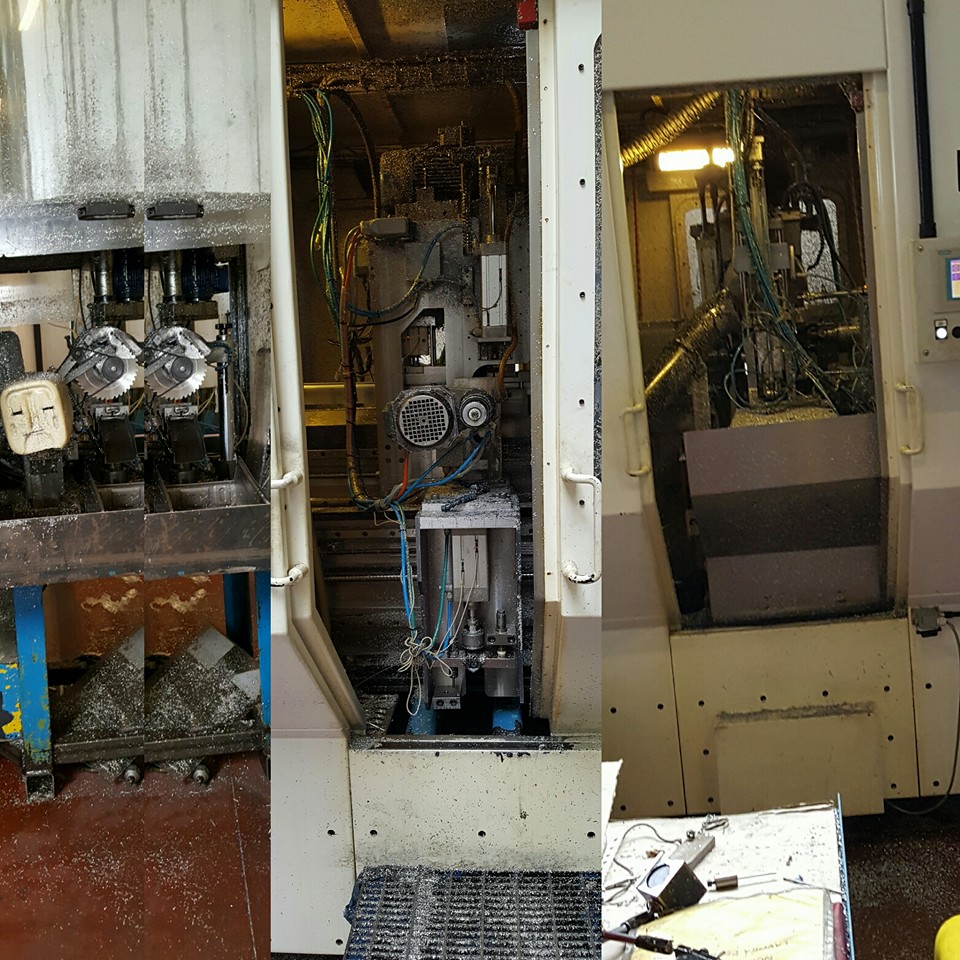
Rust : Are these 4 tracks composition the result of a specific concept inherent to the label? Did having Megastructure as your record label influence the way you created these tracks?
Liza Aikin : The overall concept for this Ep was to focus on the use of the Field recording Samples I gathered at the car workshop, so every track has a bit of it. I like the challenge of using only one sample pack I made in a specific occasion, it also binds the tracks as a product of a specific event, or field recording expedition.
I delivered the 3 solo tracks finished, take it or leave it. That’s usually how I operate.
Rust : Finally, you collaborated with Blush Response (also the label’s founder) on a well-paced metallic techno track with a futuristic rave vibe — the EP series name, “Nexus 6”, refers to a series of replicants in the movie Blade Runner. How did the imaginary Tyrell Corp factory influence the production of this track?
Liza Aikin : Joey’s sound is very futuristic and since I come from sampling factories, the Tyrell Corp factory is pretty much on brand, given Blush responses own artist name comes from Blade Runner. I struggled to close that track at first, so I sent it to him to infuse it with new elements, this literally saved “Why I should behave”. The prospective of collaborating on this track with his modular synths sounds, totally revived my interest in that track. The Nexus 6 replicant is a riddle….one of us in a replicant, you decide who.
Rust : What projects do you have in mind for the future ? Would you have any new sound directions or experiments you’d like to explore in your next productions?
Liza Aikin : In terms of experiments, I am continuing the collaboration with Monolog. This time we are focused on 140 bpm ranges to bind hard drum’n’bass elements at a slower tempo, in order to create tracks that are bpm wise compatible with modern techno tracks, but that go away from the traditional techno composition in order to feel fresh and unexpected in a DJ mix, and hopefully still interesting to listen at home. I also have a solo release coming up, based on sounds made with the Virus synth and field recording samples taken in a small fishing village in Denmark.
Interview by F.Carbone (March 2024)
Follow Liza Aikin : Soundcloud • Facebook • Instagram
